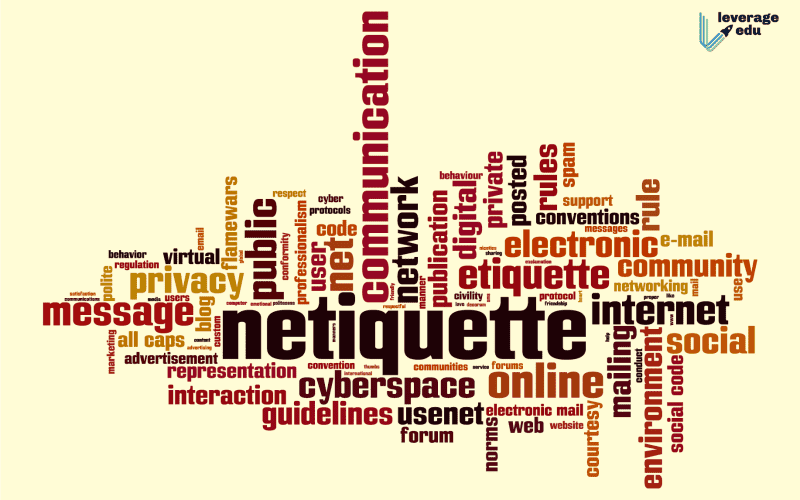formal rules of procedure or etiquette
- The rules of etiquette in internet communications and postings are called
- 10 rules of online etiquette
- What are three basic rules of online etiquette (netiquette)
Formal rules of procedure or etiquette
Understanding the distinctions between etiquette and protocol allows us to navigate various social situations with confidence and grace. By practicing good etiquette, we contribute to a positive and respectful social environment, while adhering to protocol ensures that formal events proceed smoothly and convey the intended messages el royal casino. Both etiquette and protocol play crucial roles in shaping our interactions and fostering meaningful connections in different spheres of life.
Etiquette refers to the customary code of polite behavior in society. It encompasses a wide range of social norms, conventions, and expectations that guide our actions and interactions. Etiquette is deeply rooted in cultural traditions and varies across different regions and communities. It focuses on promoting harmony, respect, and consideration for others in everyday situations.
Board meeting etiquette rules and procedures generally ensure that all board members have an equal chance to air their opinions and perspectives and receive a fair hearing from everyone. They also ensure the board members observe legal and ethical standards before, during, and after the meeting. Below are the 5 important rules and procedures of board etiquette for the members:
4. Privileged motions — These motions are usually of great importance or urgency, which requires them to be disposed of before resuming the discussion. They often deal with questions of procedure and arise out of other actions of the assembly. Examples of these motions are:
The rules of etiquette in internet communications and postings are called
If you have an in-joke to share, send it in a private message. Additionally, don’t post an obscure comment to your Facebook, a forum, or an Instagram story, as this can leave others feeling as if they are excluded from whatever it is you are talking about.
Netiquette is often referred to as etiquette for the internet. These are not legally binding rules, but recommended rules of etiquette. Netiquette is mostly used for dealing with unknown people on the internet. The rules of netiquette very depending on the platform and its participants . Generally, it is up to the operator of a website or communication app to specify the type and scope of netiquette. It is also their responsibility to monitor compliance with these basic rules and to penalize violations of them.
“The internet is a vast and interconnected space, and your online activities contribute to forming your digital identity and reputation. What you share online can have long-lasting effects on how others perceive you,” Lev explains.

If you have an in-joke to share, send it in a private message. Additionally, don’t post an obscure comment to your Facebook, a forum, or an Instagram story, as this can leave others feeling as if they are excluded from whatever it is you are talking about.
Netiquette is often referred to as etiquette for the internet. These are not legally binding rules, but recommended rules of etiquette. Netiquette is mostly used for dealing with unknown people on the internet. The rules of netiquette very depending on the platform and its participants . Generally, it is up to the operator of a website or communication app to specify the type and scope of netiquette. It is also their responsibility to monitor compliance with these basic rules and to penalize violations of them.
“The internet is a vast and interconnected space, and your online activities contribute to forming your digital identity and reputation. What you share online can have long-lasting effects on how others perceive you,” Lev explains.
10 rules of online etiquette
For questions related to class structure, such as due dates or policies, refer to your syllabus and course FAQ. Attempt to find the answers to any other questions on your own using a search engine. If your questions remain unanswered after a bit of effort, feel free to bring them up with your instructor.
Plus, many of the worst computer viruses in history have been circulated via mass emails. So don’t open an email or social media message from someone you don’t know. If the message contains a download, double-check with the sender before opening it to make sure it wasn’t sent by someone pretending to be them.
It can be insulting to be dropped from someone’s social media friend list. So, think before sending a friend request or accepting an invitation. If you don’t want to stay in touch with someone long-term, good netiquette is to not add them in the first place.
What are three basic rules of online etiquette (netiquette)
The ability to reach out to real people with the simple click of a button can be positive. But this ease of communication—and ability to speak behind the cloak of digital anonymity—can have several consequences:
The rules of etiquette are just as important in the digital world as they are in the real world—and poor netiquette (also known as online etiquette or Internet etiquette) can stick around to haunt you for much longer.
“The internet is a vast and interconnected space, and your online activities contribute to forming your digital identity and reputation. What you share online can have long-lasting effects on how others perceive you,” Lev explains.
It is equally important to be mindful of who you decide to include, as some people prefer to not be added to large group texts or social media groups. Good netiquette involves getting their permission first to ensure that they’re okay with it.
This is one of the simplest rules, but arguably the most important: treat people well. You may not always agree with them, you may not become best buddies or forge lifelong bonds, but you can, at the very least, show one another some common courtesy.
Comments are Disabled